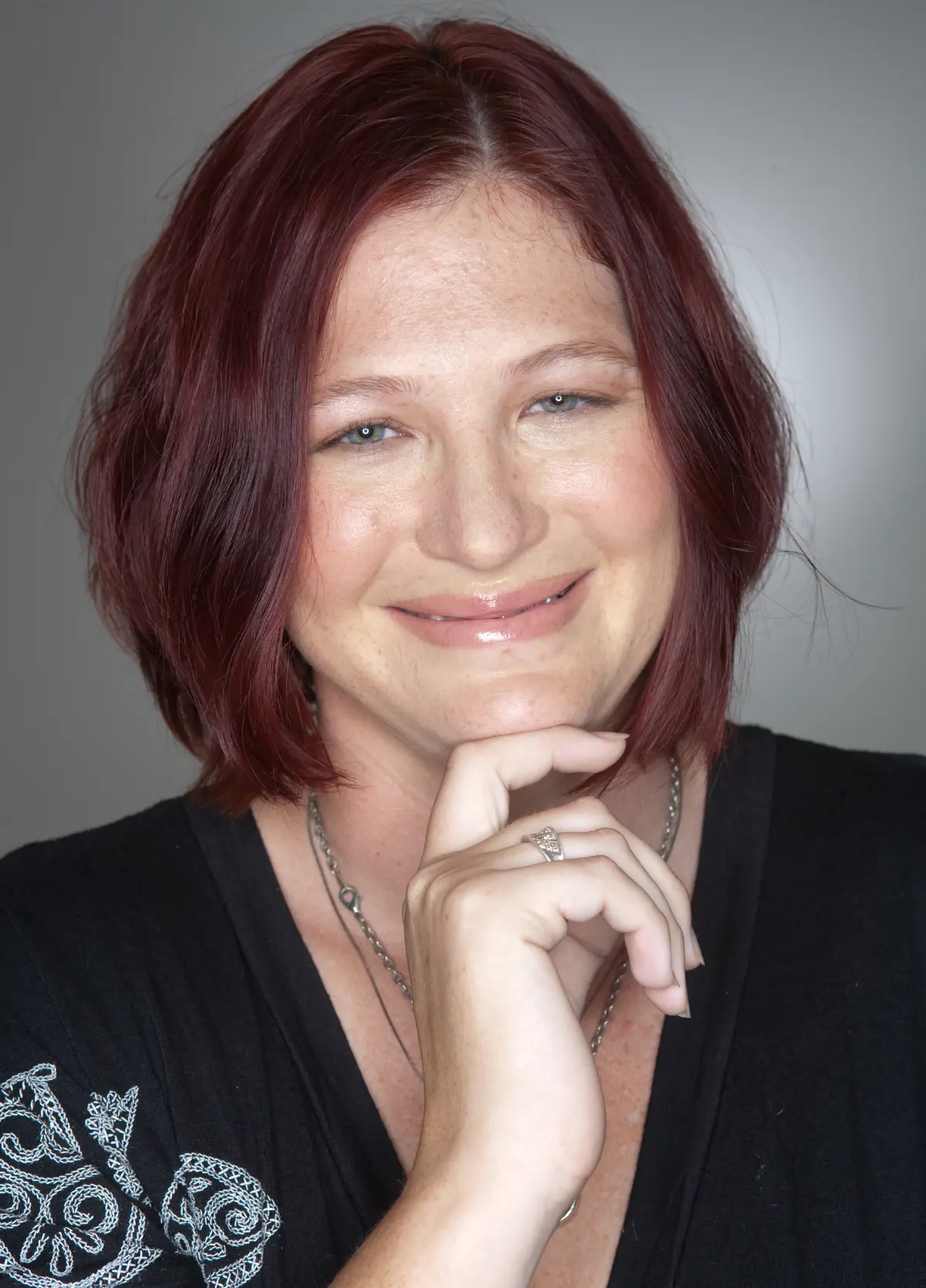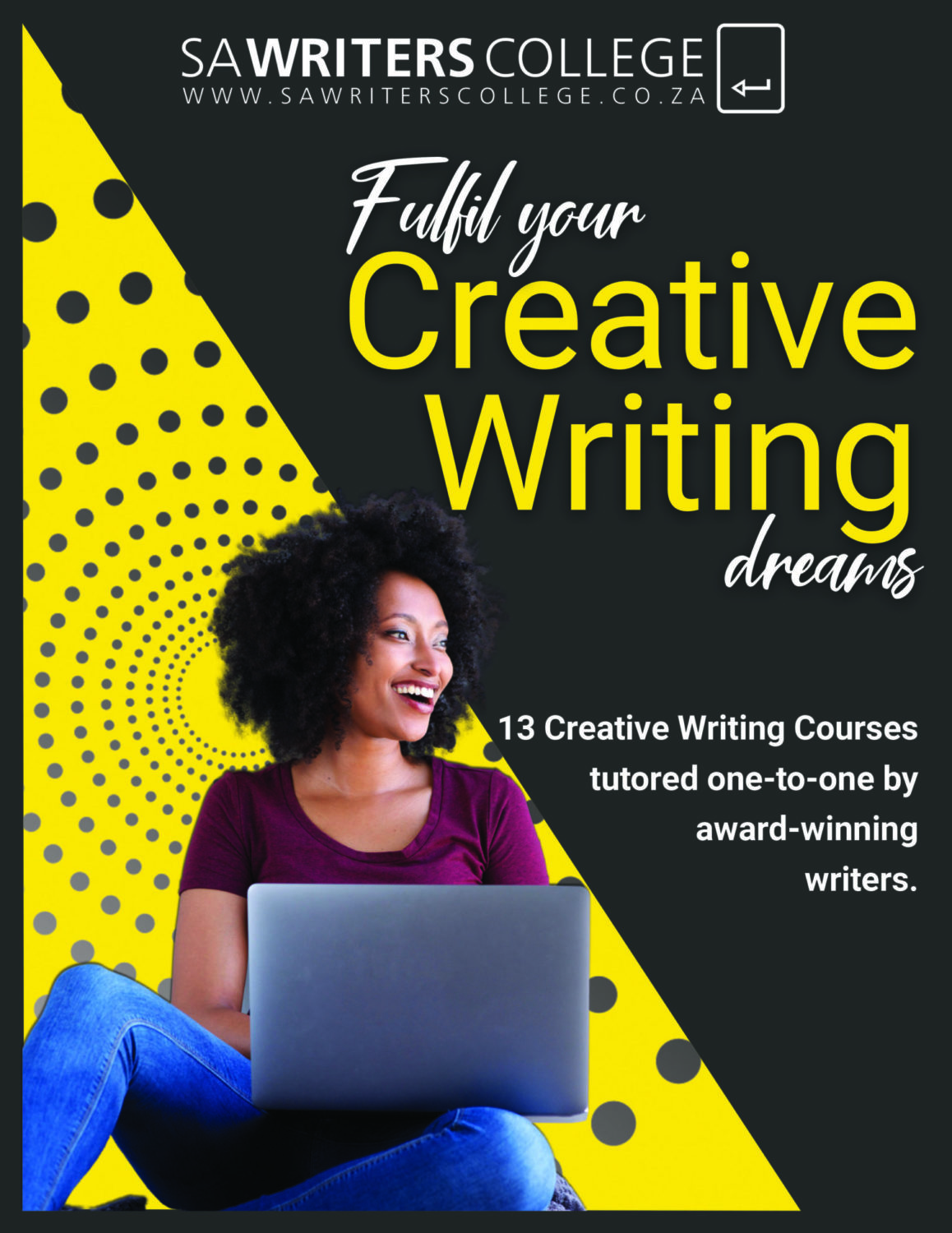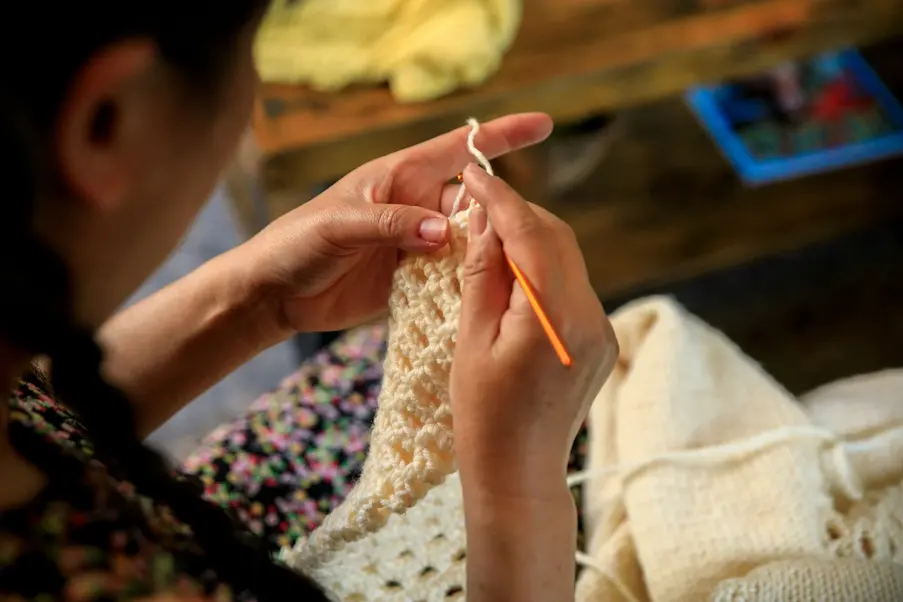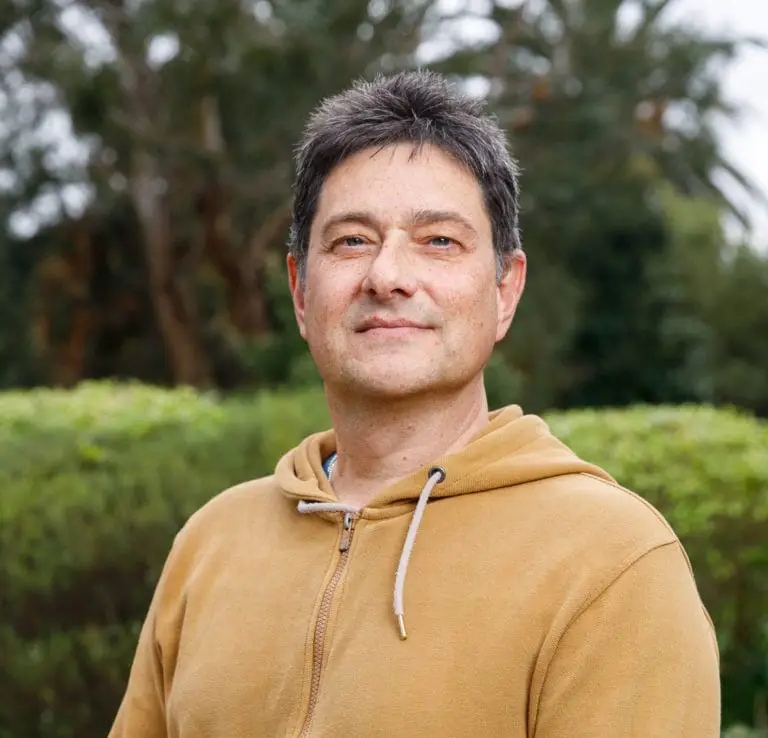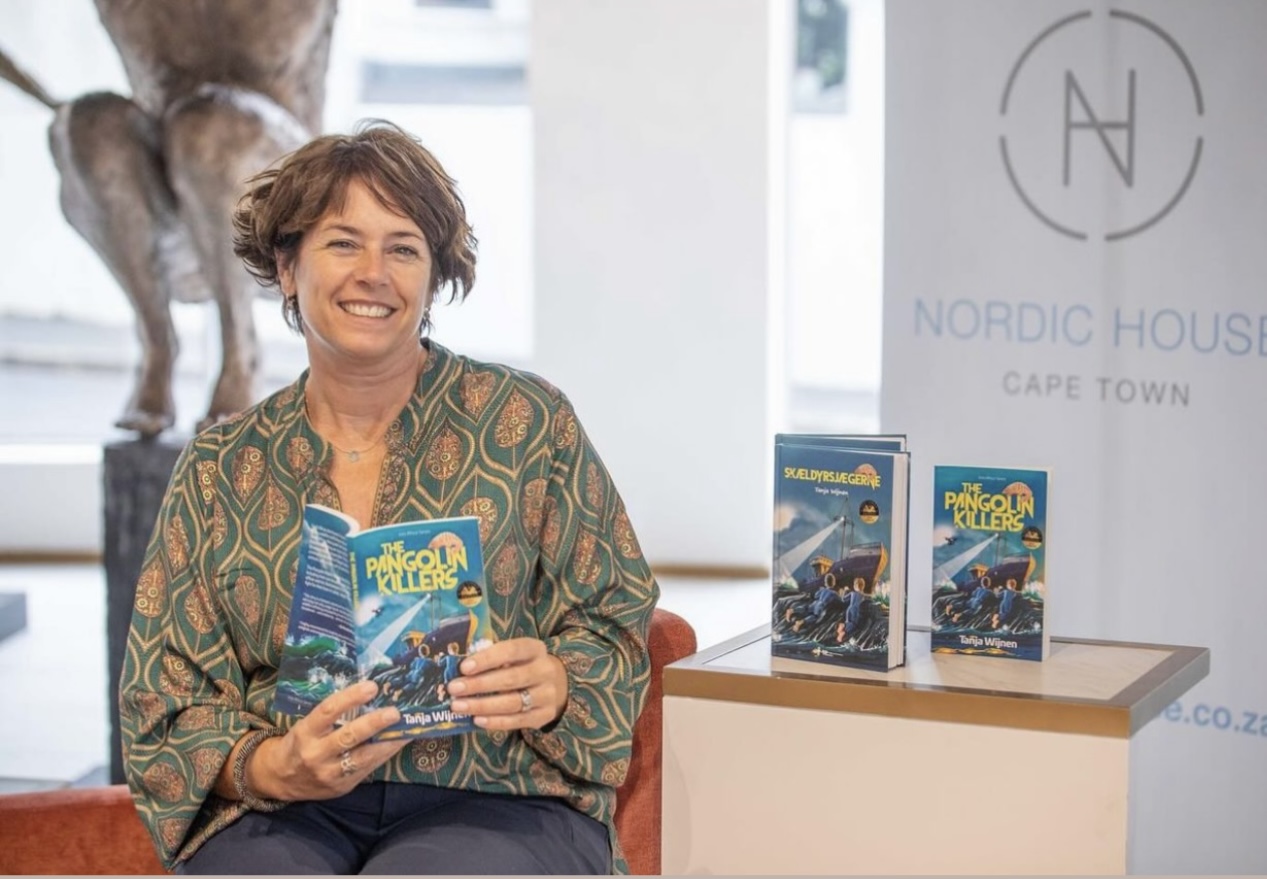How a puppet-show powerhouse became South Africa’s most sought-after scriptwriting mentor
In a cluttered home office in Cape Town, surrounded by books and postcards, Karen Jeynes opens her laptop for another monthly Q&A session with her scriptwriting students. Within minutes, aspiring screenwriters from across South Africa – and the world – fill her screen, eager to absorb wisdom from one of the country’s most accomplished comedy writers.
This is Karen Jeynes’ other stage. Away from the glittering SAFTA awards ceremonies and the writers’ rooms of hit television shows, she dedicates herself to a quieter but equally transformative mission: mentoring the next generation of storytellers through SA Writers’ College, where she has tutored for nearly two decades.
From puppet master to script mentor
Jeynes is perhaps best known for her work as head writer for ZANews: Puppet Nation, the satirical puppet show that has won 29 SAFTAs including Best TV Comedy six years in a row, two Writers’ Guild of South Africa awards for Best TV Comedy and earned two International Emmy nominations. The show’s biting political satire and irreverent humour have made it a South African television institution, with its YouTube channel accumulating over 4 million hits.
But ask Jeynes about her proudest achievements, and she’s just as likely to mention a breakthrough moment with a struggling student as she is to reference her trophy shelf.
‘Everyone has a story to tell; my job is simply to make sure they have the voice to tell it,’ she says. ‘We can teach the practicalities but the spark and brilliance – that’s theirs alone.’
This passion for nurturing talent led her to SA Writers’ College, an institution that has been training writers online since 2005 and offers 35 specialised writing courses with one-to-one tutoring by award-winning South African writers. For Jeynes, the college represents something revolutionary in South African creative education: accessible, high-quality mentorship that doesn’t depend on geography or connections.
The art of one-on-one mentorship
What sets Jeynes apart as an educator isn’t just her impressive résumé – which includes writing credits on shows like ‘Die Nuusmakers’, ‘Recipes for Love and ‘Murder’ seasons 1 and 2, and The Morning After, along with plays like the multi-award-winning ‘Everybody Else (is F*cking Perfect)’ – but her ability to balance encouragement with honest critique.
Carol Joy Williams, one of her scriptwriting students from Cape Town, captures this perfectly: ‘She is excellent, and I appreciated her encouragement as well as her helpful insights – she somehow gets the perfect balance of encouragement and then giving enough feedback so that you’re always improving.’
This delicate calibration doesn’t happen by accident. Jeynes has developed a philosophy of mentorship that treats every student script, no matter how rough, as a work with potential. Corné van der Vyver, a Senior Lecturer at North-West University who took her course, notes: ‘The most amazing thing was that she always treated my humble writings as if they had so much potential, and it encouraged me to work hard and try my best.’
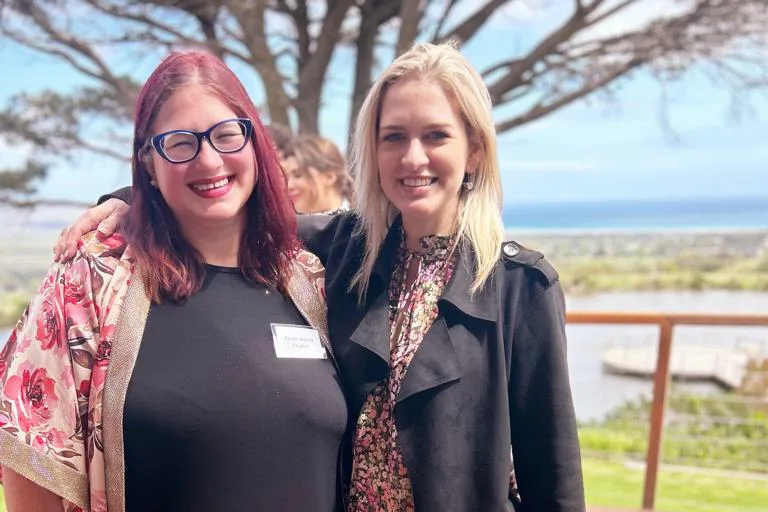
Beyond the curriculum
Jeynes guides students through both basic and advanced scriptwriting courses, helping them develop full-length scripts for television or stage. But her influence extends far beyond formal assignments. Her live Q&A sessions are a monthly treat for SA Writers’ College students – intimate conversations where industry wisdom mixes with practical advice and genuine encouragement.
‘I always felt like I could ask her anything and know I would get a well-thought-out response,’ says Reese Jenya Collings, highlighting the accessibility that makes Jeynes such an effective mentor. In an industry often criticised for its gatekeeping, she represents something different: a successful professional who genuinely wants to lift others up.
A creator’s journey
After studying Drama and Linguistics at UCT and completing her postgraduate work in The Art of Writing at UWC, she built her career across multiple mediums – theatre, television, radio and literature. Her plays have earned critical acclaim, her radio adaptations have aired on Bush Radio and SAFM. She’s co-written multiple titles for the Siyagruva series for teen readers – Jacques Attack, Flipside, Dancing Queen and Brain Glitch. Her satirical self-help book The Karen Book of Rules, co-authored with Karin Schimke, was published in 2020 by Tafelberg, and her co-authored book Flow: the book about menstruation released in 2021 with Kwela.
Currently pursuing a PhD in disability representation on television through the University of Pretoria, she embodies the principle of lifelong learning that she instils in her students. This commitment to growth, combined with her industry experience, makes her uniquely qualified to guide emerging writers through the complexities of modern storytelling.

The ripple effect
Perhaps what’s most remarkable about Jeynes’ teaching is how it extends beyond individual student relationships. She served as President of the International Centre for Women Playwrights for six years and continues to advocate for diverse voices in South African media. As an example, she recently co-founded DAWN, the Disabled Audiovisual Workers Network. Her students don’t just learn craft; they absorb an ethic of inclusivity and social responsibility that she brings to all her work.
This was confirmed when Jeynes won an award at the 2025 Inclusive Lens Awards night, an event designed to highlight, celebrate and promote film and TV projects that feature excellent representation of the LGBTQIA+ community and people with disabilities.
In a country where access to quality creative education has historically been limited by geography and economics, Jeynes represents a democratising force. Through SA Writers’ College’s online platform, a student in rural KwaZulu-Natal can receive the same level of personalised attention as someone in Cape Town or Johannesburg.
The writer’s writer
For nearly two decades, Jeynes has offered South African writers something invaluable: not just instruction, but genuine mentorship. In a world increasingly dominated by algorithms and automation, her one-on-one approach feels both radical and essential.
As past student, Carol Williams, says, ‘[Her mentorship] has given me the tools to start exploring something deep inside me that I’ve always known is there, but haven’t known how to access.’
Jeynes reminds us that great writing isn’t just about technique – it’s about human connection, and sometimes the most important audience for a story is the teacher who helps you find it.


